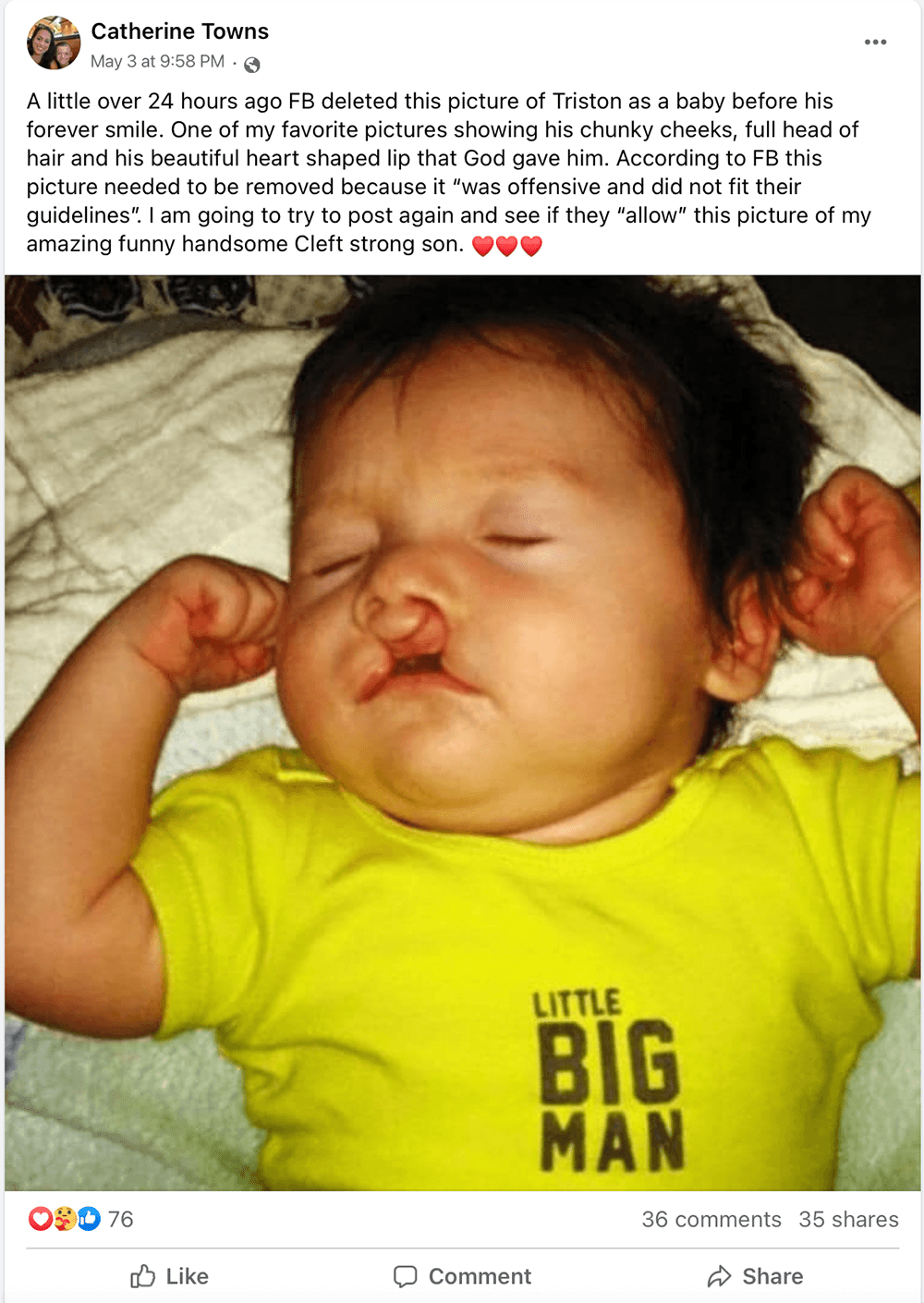What is Offensive About this Picture?
Imagine posting a picture of your beautiful baby on Facebook and finding out a few hours later that Facebook removed the picture, saying it was "offensive" and "did not fit their guidelines" because he has a cleft lip!
That is exactly what happened to Catherine when she posted this picture of her son, Triston, on Facebook. This was Catherine's "favorite picture of him, showing his chunky cheeks, full head of hair, and beautiful heart-shaped lip that God gave him."

Triston's Baby Picture that Facebook Removed and Catherine Reposted
It's an Innocent Baby Picture!
Catherine thought it would be okay to post the picture since it was taken ten years ago, and many people who follow her on Facebook are her friends who also know Triston.
A few hours later, Catherine received a notification from Facebook that Triston's picture was removed for being “offensive" and “going against Facebook’s guidelines”. When she saw the notification pop up on her phone, long-forgotten feelings of shame, guilt, and fear flooded her as the memories and emotions associated with having a child with a cleft lip and palate were triggered by Facebook’s insensitive, and impersonal actions.
It is possible that Facebook's algorithm automatically removed the picture without verifying whether it was offensive. Then again, perhaps a human looked at the picture and determined that any picture of a baby without a perfectly formed mouth is "offensive" and must be removed.
Not Pornographic or Offensive!
The picture of Triston as an adorable baby boy with his endearing cleft lip, should be seen as a symbol of resilience, strength, and the beauty of individual difference, NOT something to be ashamed of, deleted, or flagged as offensive as if the image was pornographic.
Facebook Does NOT care about Inclusivity or Diversity!
By labeling Triston's baby picture as offensive and in violation of their guidelines, Facebook missed an opportunity to embrace inclusivity and diversity.
Further, the social media platform perpetuates harmful stereotypes that pictures of babies (or anybody) who do not fit social norms of beauty standards or appearances, are considered offensive and should be hidden from society since they are considered unworthy of being seen in public.
Facebook's actions are not very different from the behavior carried out in some foreign countries where babies born with a cleft lip and palate are abandoned, shunned from society, treated as monsters, and, in some cases, killed.
The next day, after Catherine had time to process her emotions, and with the support and encouragement of her friends, she reposted the picture of Triston. Facebook did not remove the picture a second time, but by then, the damage was done. Censoring Triston's baby picture undermines the progress society made in promoting diversity, acceptance, and understanding.
As a result of this incident, Facebook needs to reassess its policies and address the biases and prejudices that affect their content moderation decisions.
Cleft Community Call To Action
Since July is Cleft Awareness Month, I am asking everyone in the cleft community to stand together in solidarity and support by celebrating all baby pictures and pictures of everyone with a cleft lip. Throughout July:
- Share your child's (or your own) baby picture on your social media account.
- Make it public and ask your friends and followers to share your post.
- Include the following caption (or write your own):
I was born with a cleft lip, and I am NOT OFFENSIVE. I WILL NOT BE HIDDEN. I am 1 in 700, I am proud of my cleft lip, and I am CLEFT STRONG.
Use the Hashtag: #cleftstrong
You can also share any picture of yourself (or your child) if you don't have a baby picture.
Post a different picture once a week during July to refresh your social media feed.
Let's show society, Facebook, and social media that we will not be hidden.
As we flood social media with our beautiful photos, we demonstrate to society that pictures of babies, children, teenagers, and adults with a cleft lip are NOT offensive or inappropriate. Our unique smiles can create a more inclusive society by challenging misconceptions, promoting acceptance, and increasing awareness about cleft lip and palate.
